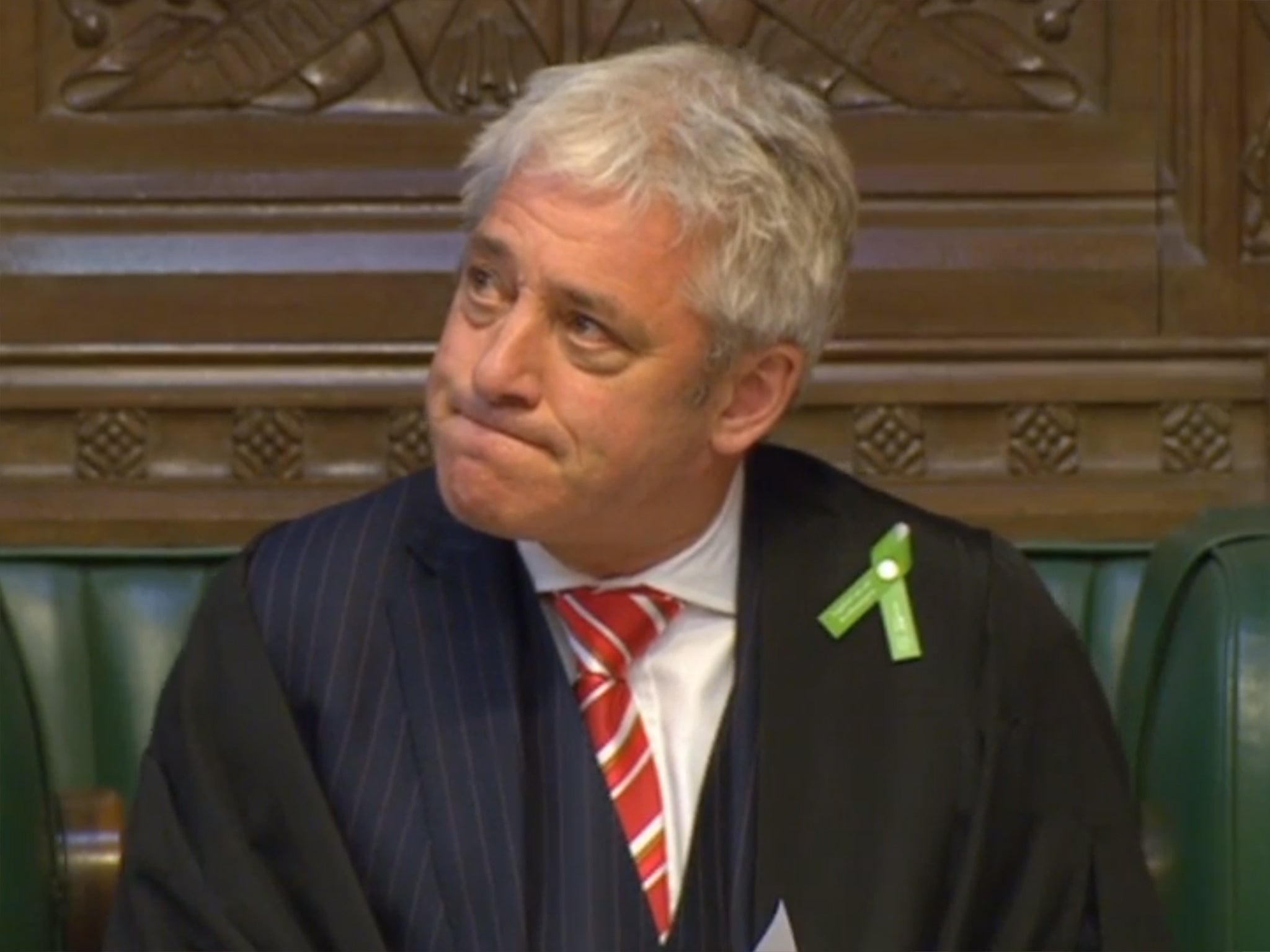MPs arguing Bercow should stay on until after Brexit have a point – but more needs to be done to tackle the toxic culture in Westminster
I have seen a reluctance to investigate past allegations, a tendency to delay, obfuscate, gag staff with non-disclosure agreements and, even worse, cry ‘witch hunt’, as if the perpetrators were the victims


Brexit is so important that it “trumps bad behaviour,” even sexual harassment and bullying. Of the sentences I never thought I would write, this is near the top of the list. Along with “I love Brexit” and “I hate Spurs.”
But it is what some serious politicians I respect are arguing. They want to keep John Bercow in his chair as Commons speaker for the crunch votes on Brexit over the next few months, despite Monday’s damning independent inquiry into the abuse of staff at Westminster, which called for a clear out of parliament’s top team, including the speaker.
Labour’s Dame Margaret Beckett, Emily Thornberry and Ben Bradshaw were among those making the case for Bercow to carry on. I was appalled, even though I understand why they did it. If Theresa May gets a deal – I think she will, despite the gulf between the UK and EU that will be evident at the Brussels summit starting tonight – many MPs suspect she will try to railroad it through parliament.
Although MPs and peers have spent many hours debating the “meaningful vote” they have supposedly won on the deal, they don’t know how meaningful it will be. Backbenchers suspect that May will try to wriggle out of it as she presents the choice as between her deal (however bad) and a no-deal exit. The crucial debates could turn on procedural rulings, such as whether a motion approving the deal, and a subsequent bill, could be amended – for example, for a vote on a Final Say referendum, to ask May to seek a better deal or, if no deal has been approved by the Commons, to prolong the Article 50 process beyond next March. Such rulings will be a matter for the speaker, though he will take advice from Commons clerks.
MPs believe that Bercow would be more likely to stand up to the government, and give backbenchers in all parties and the Labour opposition a fair chance to fully debate a Brexit agreement (and to prevent a cliff-edge exit next March if there is no agreement).
Bercow is a mercurial figure but in many ways has been a good speaker, a much-needed breath of fresh air in the stuffy Westminster atmosphere. He has transformed the Commons chamber by ensuring ministers are held to account in real time, by vastly increasing the number of urgent questions they must face. When I landed in the Westminster village in 1982, such statements were rare, and often made only when ministers were ready to make them. So MPs would discuss an EU directive on paper clips while a scandal in the real world went undebated. The number of urgent questions has risen from 12 in Bercow’s first year as speaker to an average of 50 since. Cabinet ministers resent having to tear up their dairies and face the Commons music (and sometimes pass the hot potato to a hapless junior minister). Hopefully Bercow’s successor will agree that the clock cannot be turned back.
Bercow is hinting (again) that he will step down next summer after 10 years in the chair, and will probably manage to hang on until then. But in normal times, MPs on all sides would ensure he departed sooner rather than later after Monday’s scathing report by Dame Laura Cox. She concluded that bullying and harassment of staff by MPs and officials is due to “systemic or institutional failings” and a culture of “deference, subservience, acquiescence and silence.”
I have seen this for myself over the years. Part of the problem is that MPs are kings in their own little world because they employ staff directly; it would be better if they were employed by parliament.
I have seen a reluctance to sweep the stables clean, investigate past allegations (as Cox recommends); a tendency to delay, obfuscate, gag staff with non-disclosure agreements and, even worse, cry “witch hunt”, as if the perpetrators were the victims. It is worth remembering that the Cox inquiry would not have happened without last year’s revelations by the BBC’s Newsnight programme.

I’m still not sure MPs get it. They will get compulsory training – but not until 2022. Why not next week? Similarly, the Cox report will be considered on Monday by the House of Commons Commission – the “senior House administration” Cox does not believe can deliver the changes needed and wants to stand aside. Bercow, himself the subject of bullying allegations which he strongly denies, has recused himself in the past. But the commission is plainly not the right body to take forward the Cox report.
Yes, Brexit is the country’s biggest challenge since the Second World War. But the MPs who think it should take priority over dragging parliament into the 21st century should think how the victims of abuse in parliament will feel. And the public, who will surely wonder why MPs should make rules and laws about harassment, bullying and the workplace when they have so conspicuously failed to put their own house in order.
“Lord, make me good, but not yet,” is no longer good enough.
Join our commenting forum
Join thought-provoking conversations, follow other Independent readers and see their replies
Comments
Bookmark popover
Removed from bookmarks